SRF YSS monks on parenting teenagers
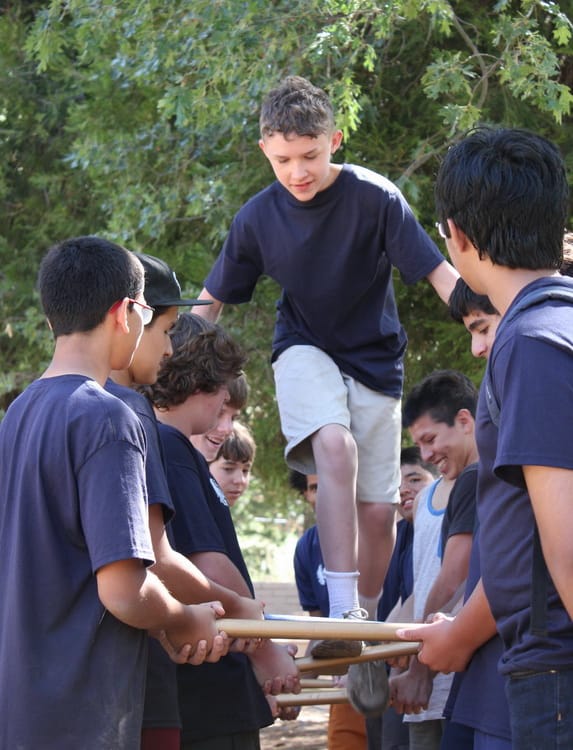
Note: Please do not forget to read about “Loving Discipline” and “Loving Communication” which are needed by children of all age groups.
From Yogoda Satsanga magazine, 2001-02 (Oct-Dec, Jan-Mar)
Parents should always remember the three most important words in any language: “I love you.” Say these words to your children often — and say them without condition, without any “because.” Not, “I love you because of this” or “I love you because you did that.” Rather, “I love you for you.”
Unconditional love changes an ordinary family into a spiritual family.
This is especially vital during the teenage years, when children are moving into adult relationships and parents are moving more and more into mentoring roles. Family relationships can get very tense during this period and parental expectations can easily become conditions of love. It is true that high expectations are very important in parenting— they help to bring out the child’s potential and they are doubly important in mentoring. But don’t let expectations become conditions of love. This may happen without your being aware of it. Even a good parent may not realize that a sensitive child may feel, “My parents only really love me if I do what they expect me to do.” That kind of relationship will not foster healthy emotional and spiritual growth. Separate the issues from the love; when your child falls short of your expectations, say: “I love you. I may be mad at you, I may be frustrated with you, I may be disappointed with you at this time, but I love you and I will always love you. I want the highest for you and it hurts me when you do not live up to those expectations. But I will always love you.” This is love without any “because,” without conditions — the type of love sought by every human being, as our Guru tells us. Unconditional love changes an ordinary family into a spiritual family, contributing powerfully to the soul-unfoldment of children as well as parents.
From Yogoda Satsanga magazine, 2001-02 (Oct-Dec, Jan-Mar)
Paramahansaji gives a very useful perspective on parenting in discussing the development of will power. He describes several evolutionary stages of will power as children grow into adults. The first stage is “automatic physiological will,” such as when a baby cries in order to be fed or have other basic physical needs fulfilled. Next the infant or small child develops “unthinking will.” At this stage the child quite readily obeys the parents’ instructions; he does not yet have much independence or reasoning ability in order to question. Naturally, many parents wish this stage would last forever! But soon the growing child begins to have impulses of independence: “I want to do this.” “I don’t want to do that.” “I’ve got to have one of those.” This is called “blind will”; it is motivated not by reason, but only by impulse; and the parents need to protect and guide the child and always be on guard for its safety during this stage.
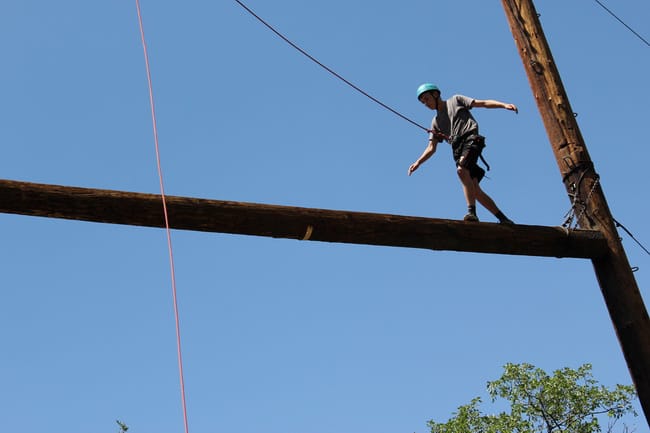
If the child is fortunate to have parents who provide proper guidance, blind will then develops into what our Guru calls “thinking will.” Here the child’s world becomes larger; he or she starts thinking about consequences of actions and making longer-term plans, and gains some understanding of what life is all about.
Parenting in large measure consists of helping children to make the transition from blind will into thinking will.
Very few people reach the final stage, which Paramahansaji defines as “wisdom-guided will.” This is what we strive toward on the spiritual path. Wisdom-guided will is thinking will that is attuned to God’s will. Remembering these phases of development will help you to understand how to relate to young people at the different stages of their lives. Parenting in large measure consists of helping children to make the transition from blind will into thinking will. A few years ago, when another sannyasi and I were giving classes in Berlin, we had a wonderful meeting with about fifty young adults. At the beginning, I asked them, “What do you want to talk about?” One young man said, “Well, how can we be most successful in life?” I responded: “What is success? How would you define success?” And then I posed it to the group: “Why let the world define success for you? Why not define your own goal? What kind of success do you want to strive for?” At this, the room got electric. There was a lot of energetic discussion on what goals are worth pursuing in life, and after about twenty minutes the group boiled it down to three key points. I call this “the Berlin Formula”: 1) To seek and find true happiness within. 2) To realize our human potential. 3) To balance the material and spiritual aspects of life. When you approach young people on this level, who’s not listening? Who’s not paying attention? This is stimulating their thinking will. Challenge them to ask their own questions about life, and to identify what they want to achieve materially and spiritually. I asked them, “Why should we let the world tell us how to live? If we follow the advice of the world, it’s a fifty to seventy-five-hour work week on the fast track. You earn a bundle of bucks—or deutsche marks—and then retire to play golf. Is that where you want to end up? Our Guru’s advice, on the other hand, is to choose some work you love, because if it is something you enjoy and are naturally good at, that means you have done it before in a past life, and you will be more likely to succeed. So pick something you love to do; develop it into a useful skill; and use it to provide some kind of service. Make some money with it. And then live a simple, high-quality, spiritually balanced life and be happy now. That is Paramahansaji’s formula. Now, which do you prefer to follow? The advice of the world or the advice of an avatar?”
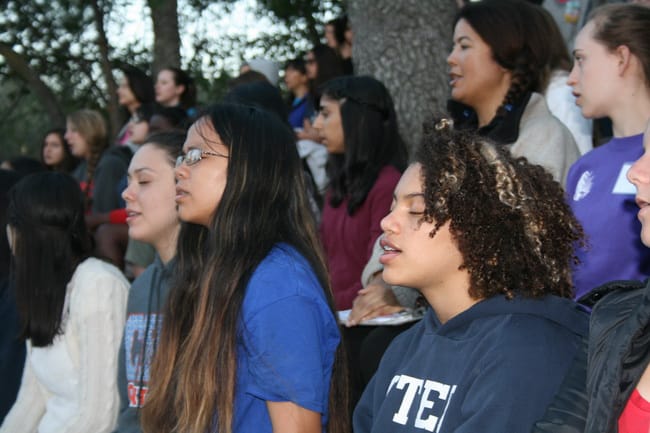
From Yogoda Satsanga magazine, 2001-02 (Oct-Dec, Jan-Mar)
We use thinking will to research and make good choices, but it is wisdom-guided will to consult a spiritual prophet. When making decisions about life, don’t let the world dictate what you should do. Think very carefully about how you want to define your goals, and then look to the teachings of the Master and see what he has to say. You will find that he sets the highest possible agenda to help you realize your ultimate human potential. He will give you advice whose value has been proven over the centuries.
From Yogoda Satsanga magazine, 2001-02 (Oct-Dec, Jan-Mar)
…as children mature, parenting should evolve into mentoring. First, it is important to make a distinction between rights and privileges. A roof over their heads; food and clothing; a clean, nurturing home environment: every child has a right to these things. But use of the family car, a high-speed modem, unlimited internet time, a private phone line with voice mail, a private room: these are privileges, which can be bestowed depending upon the family’s means and what is appropriate for each child.
I advocate a mentoring process of negotiating privileges.
Requests for privileges are golden opportunities to challenge thinking will. In the stage of blind will, children simply demand something and expect that you will grant it; but you can help them cultivate the higher stage of thinking will by showing them that there is a host of considerations and consequences associated with that privilege. I advocate a mentoring process of negotiating privileges. Suppose your boy says, “Mom, can I ride my bike over to visit my friend?” who lives in another neighborhood. Well, you would rather he stayed home in the yard till he is thirty years old! You think, “He would have to cross two busy boulevards, and does he even know the way back?” This is an opportunity to negotiate. Under what conditions would you be willing to say yes? You might tell him: “I’d like to say ‘yes’ but we need to discuss it a little bit first. Would you be willing to talk out my concerns?” Now you’ve got his interest, because he wants this privilege. You identify a few conditions that are, as far as you can tell, simple and reasonable. Then you discuss those conditions, get an agreement, and carry it out. This process develops his thinking will, leading him to consider a bigger picture and the responsibilities that accompany a privilege.
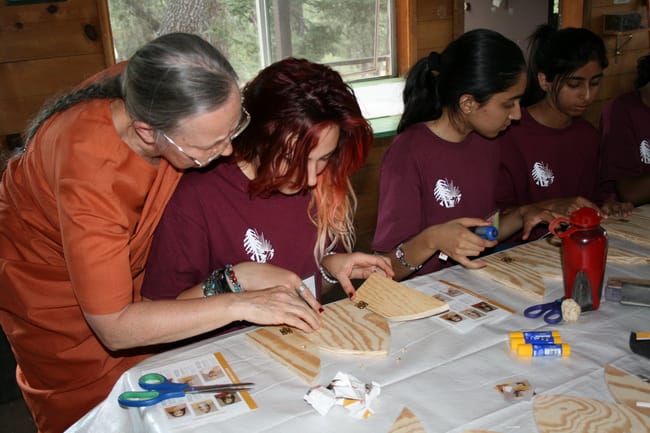
From Yogoda Satsanga magazine, 2001-02 (Oct-Dec, Jan-Mar)
This healthy communication can be initiated by either party. So the young lady who wants privacy could go to her mother and ask: “Mom, what do you need in order to feel comfortable about not going into my room?” This is a very mature way to approach problems — even though it may well scare Mom into signing up for a negotiating seminar right away! Here we have an excellent opportunity for good parenting. The child wants a privilege: privacy. Under what conditions would you be willing to bestow that privacy? You might think about it and then discuss with her: “Well, you throw your things all over the room and I don’t like that in my house. Can we set up a landing zone in the closet so that you keep the room reasonably neat? Also I need assurances about marijuana, alcohol, and all such substances. Now, if you promise that you’ll answer honestly any questions that I ask about these things, which cause me great concern for your safety and well-being, I will feel no need to go into your room. Is that agreed?” In the beginning, this process may be uncomfortable for both parties, yet the result is an agreement that satisfies each one. The daughter gets the privacy, and the parent gets reassurance and accountability. This process is wonderful for developing thinking will in children. It takes them from blind will, where they just want to have something, and challenges them to reach higher levels of responsibility and accountability. The underlying message must be: “I love you always, without conditions.” But at the same time you let them know, “I am expecting you to live up to this agreement.” If the agreement is lived up to, it builds trust which in any honest relationship has to be earned. If one of the parties dishonors the agreement, he or she has to go back and start building that trust all over again. Yet even this presents opportunities—the chance to mentor your child in patience and forgiveness.
By adding prayer to the formula, you can take this process to an even higher level. You bring God into the situation. Parent and child might pray together: “Lord, help us that we might honestly live up to our agreements and that we might be truthful with one another. Give us the understanding and strength to be harmonious in all circumstances.” Praying together over contentious issues helps both parent and child to evolve beyond thinking will to wisdom-guided will — connecting your individual will with God’s will. This is the way of spiritual families.
From “Bridging the Generation Gap” (Devotee’s notes)
Children at that age (2 to 15 years) are capable of much more than what we expect of them… I got my first job at the age of 13. I did jobs, went for a summer school job for adults. But in the present society children don’t get to do things. I know an Indian family grown up in America since they were small. The boy had a brilliant mind. He finished his high school went to the University, got several degrees including Premedical, then completed medical at the age of 25, took off in the last year and helped in a hospital in Africa. After graduation he was accepted in a clinic and was granted a Ph.D. Besides many other merits, he finished his Residency, helped again in Africa, and has been leading in SRF activities. Look at all the things he has done in 10 years. Don’t underestimate them… During the American Civil War 18 year old Colonels had 1000’s of men under them. Now the system doesn’t give them a lot of opportunity.
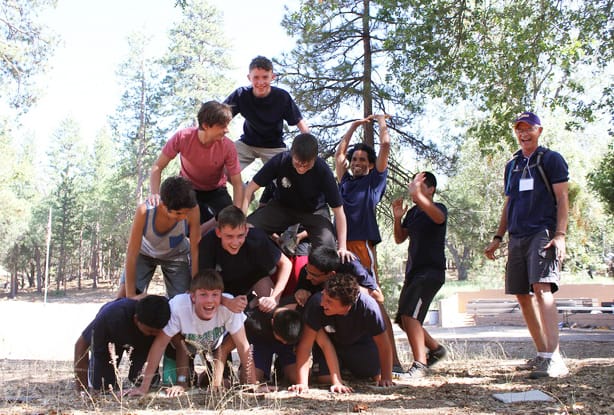
From the talk “Wisdom of the Bhagavad Gita”
It was sometime ago when a lady called me on the phone and said, “you know there is a woman psychologist with a radio program. You should listen to her. She is really good”….. I did listen one time. The first thing I heard what she said was “We hear that more and more teenagers are getting involved in drugs,” she may have mentioned preteens, but I forget, but teenagers for sure. And she said, “when we hear that, the immediate reaction is that this information has to go out to those kids and they have to know the danger” and then she said, “that is not the problem. They know! The problem is they don’t care!” And I thought- “Exactly!” Why? Manas ruled by the lower mind. Manas has no discrimination. There is no questions as “What will be the consequences if I do this and that and the other things.” None of it. Ruled by Manas. You blame the kids. They do not know. The society does not know these things. They do not know systematic training and development of the higher mind or Buddhi is necessary. Our society does not teach that. Our educational system does not teach that. They do not know. What about the grown ups? Same thing. Most of the people - ruled by Manas.
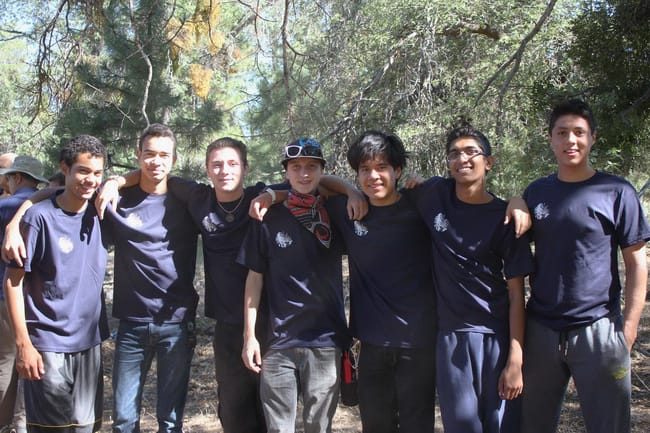
From Yogoda Satsanga magazine, 2001-02 (Oct-Dec, Jan-Mar)
Another question, asked by a mother in Buenos Aires and maybe by you, too: “My teenage daughter began taking the SRF Lessons a year ago. She’s a very spiritual person, but now seems to have lost the intensity of interest she had for the teachings. I don’t want to press her, but I’m afraid she will pass up a very important aspect of life if she chooses not to pursue the spiritual path. As a parent what should I do?”
What should you do? You study your Lessons and don’t nag her about studying hers. This is when parenting shifts into mentoring, and mentoring is more “do” than “say.” By the time she is a teenager, your daughter has heard your advice and knows much of it by heart. It is going to mean more to her—and to you—if you study your Lessons.
Don’t stay in your room to study them; come out into the living room or the kitchen—but not ostentatiously as if to say, “See, I’m studying my Lessons you should be studying yours.” You should be studying not for her, but for you. Become enthusiastic about them, and then share what you learn with her—but not with a feeling of “Oh, you should see this quote. I think it will help you.” Rather, share how what you learn affects your life: “I have been having such-and-so problem lately, and when I read these words of Master about how to solve it, I’m really excited. I’m going to try it out!” As she sees you applying the teachings with enthusiasm, and the effect that it has on your life, that is going to make an impression on her. This is how you become a spiritual role-model. It’s win-win: you’re getting the benefit of it and so is your daughter.
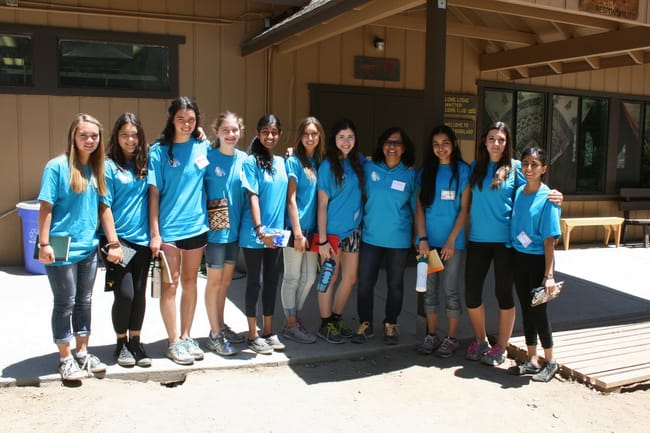
From Yogoda Satsanga magazine, 2001-02 (Oct-Dec, Jan-Mar)
I would also encourage parents to be emotionally honest with their children. Parents naturally want to appear strong in front of their children; and this fills a vital need for a sense of security in young children. Yet at a certain stage it is good for kids to know (within reason) that Mom and Dad are hurting, or there is a difficulty, or something is wrong. It is not the problem that is so important for the kids to see, but how the parents work to solve it and spiritualize it. This is a very valuable type of mentoring. The child wants to see how Mom and Dad handle things. And if you’ve been emotionally honest with your child in this way, you will see that later, when he or she has a problem, there may he more willingness to share it with you and that is your open door. Listen and empathize; don’t make light of the problem, but try to understand the full importance of it from this young person’s perspective. Then you can say, “I have found that this solution from the Guru’s teachings has worked for me. Maybe it will work for you, too.”
A thirty-year-old woman told me a beautiful story: “When I was a teenager my father left the family, and there was a very brutal divorce. My mother was almost destroyed, but she and I stuck together. l could tell that this difficult experience was taking a toll on her. One night I came home and waIked down the hall past her bedroom. Her door was open just a little bit, and I looked in. She was on her knees, crying in front of her altar. I just stood there and looked at her. i saw the deep, sincere yearning for healing that she was taking to God. It made a tremendous impression on me. I don’t think I will ever forget that scene of my mother on her knees before her altar in her time of need.” And then she concluded: “When something difficult happens to me in my life, I know what I’m going to do.” So your children may act like they’re not watching; and you may think they’re not listening or paying attention, but they are. They are taking in everything, and it is making an impression. Your actions speak louder than your words, and perhaps not immediately, but certainly when they have the need, you will see how profoundly your actions have helped to shape their spiritual lives.